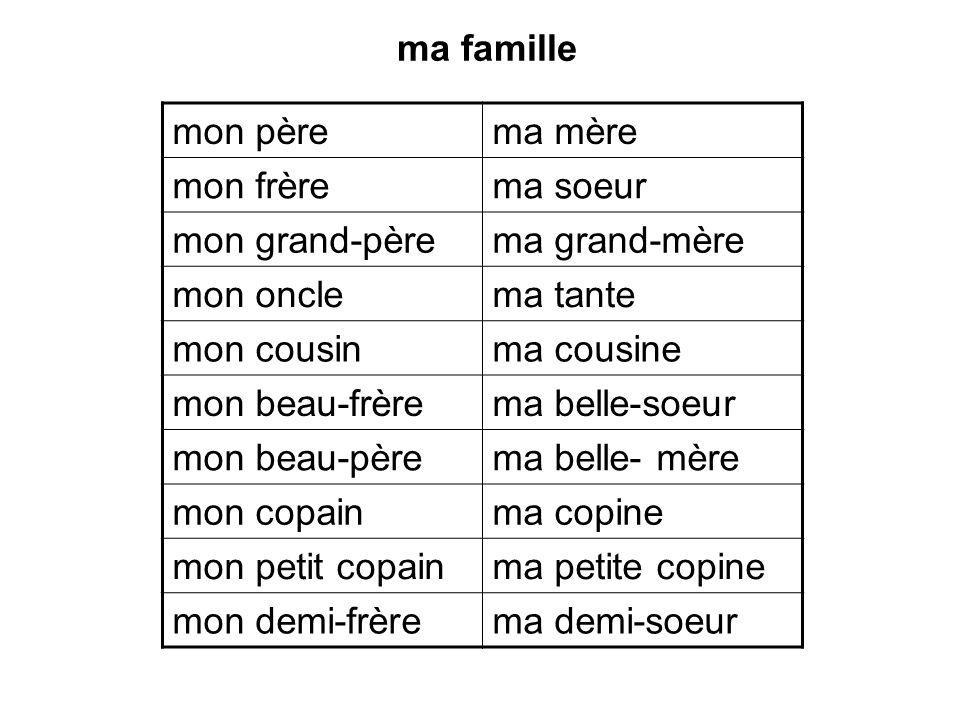Monsieur McKennaTeacher of French La vie est une fleur dont l’amour est le miel. -Victor Hugo“Life is a flower of which love is the honey.” Email: mckennaj@lcmrschools.com | Phone: (609) 884-3475LCMR School District - 687 Route 9, Cape May, NJ 08204 |
| HOME | French I | Foreign Language for Everyone | French Club | Links |
Unité 1 Famille et copains
Leçon 2C: Les photos d'Isabelle
OBJECTIVES
Pour communiquer How to introduce your family: Voici mon père. This is my father. La famille (Family)
Les animaux domestiques (Pets)
NOTE Culturelle
La famille française When you and your friends talk about your families, you usually are referring to your brothers,
mon cousin, ma cousine The French equivalents of my and your have the following forms: MASCULINE FEMININE mon cousin my cousin (male) ma cousine my cousin (female) Note that the feminine ma becomes mon and the feminine ta becomes ton before a vowel sound. Liaison is required.
Pour communiquer How to find out how old a friend is: Quel âge as-tu? How old are you? —Quel âge as-tu? How to ask about how old others are: —Quel âge a ton père? How old is your father? Although years old may be left out in English, the word ans must be used in French when talking about someone’s age.
"Avoir" chanson
Prononciation The letters “an” and “en” usually represent the nasal vowel /_ /. Be sure not to pronounce an “n” after the nasal vowel. Répétez: a /n / s ta /nte fra /nçai / s quara /nte The letters “on” represent the nasal vowel /__/. Be sure not to pronounce an “n” after the nasal Répétez: no /n bo /njour o /ncle garço /n Contrastez: a /n—o /n ta /nte—to /n o /nze—a /n/s
Warm up activities
Vidéo Activités Vidéo Activités Worksheet
Audio Activités Audio Activités Worksheet
Les devoirs (homework)
Quizlet Live
QUIZ - Leçon 2C
Unité 1 - TEST (A) Audio Script
|








